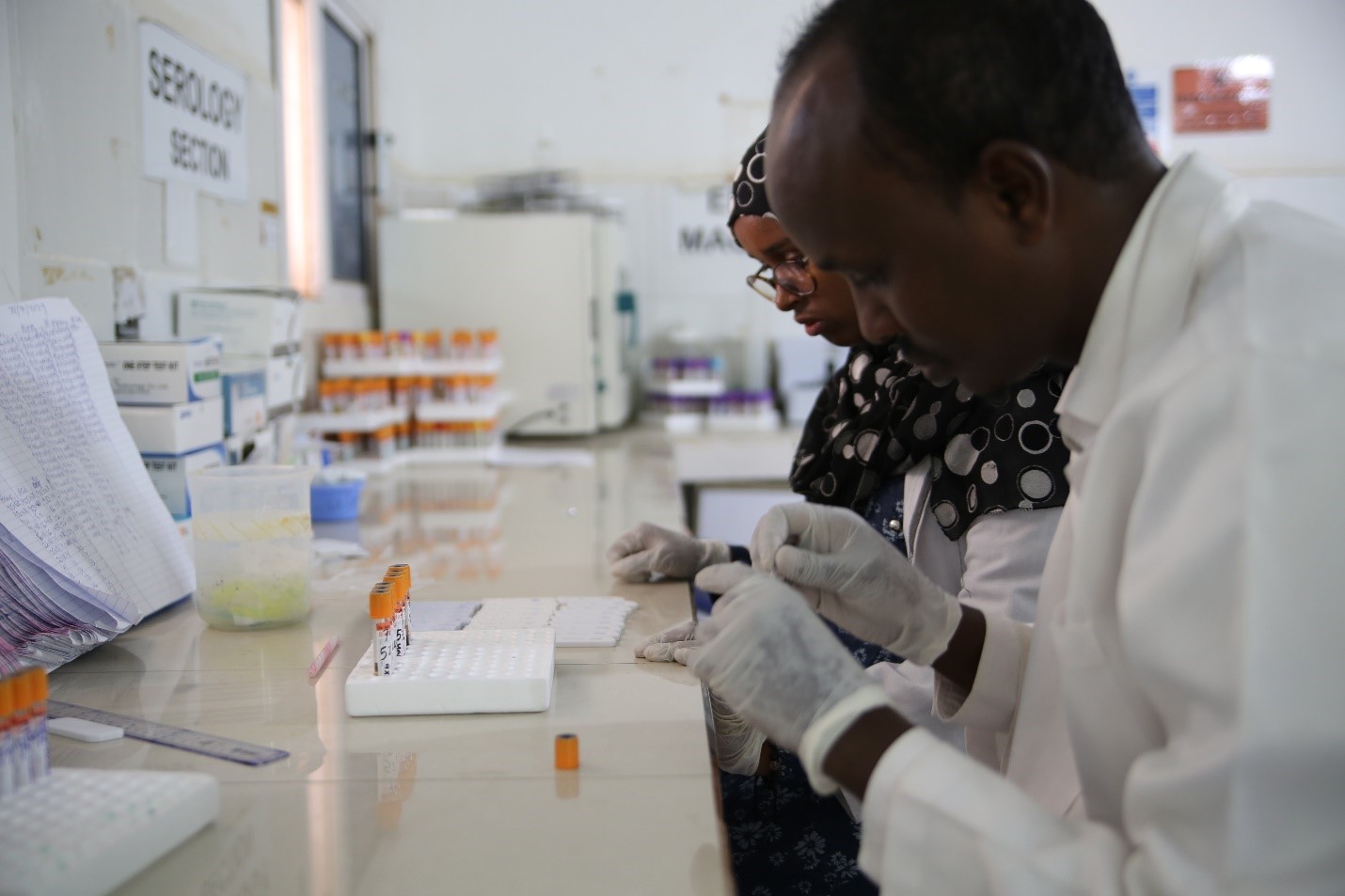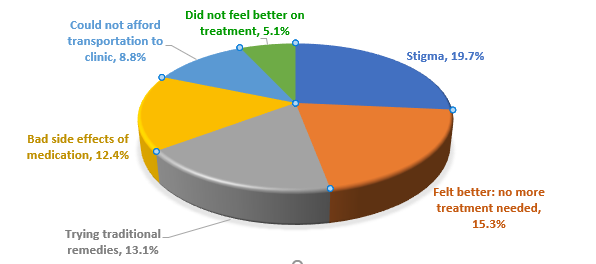 Laboratory workers conduct blood testing in Hergeisa, Somaliland. Photo credit: WHO Somalia/Fouzia Bano
Laboratory workers conduct blood testing in Hergeisa, Somaliland. Photo credit: WHO Somalia/Fouzia Bano
Mogadishu, 01 March 2023 – On Zero Discrimination Day (1 March), which is organized annually by UNAIDS to combat HIV/AIDS-related discrimination, WHO Somalia stands in solidarity with people living with HIV/AIDS. In 2023, the theme for the day is “Save lives: decriminalize”. While the Somali government, in partnership with WHO and other stakeholders, has made great strides in reducing the prevalence of HIV, stigma and discrimination remain and must be addressed.
WHO’s HIV/AIDS work in Somalia focuses on building the capacity of the health system to offer HIV testing, counselling and treatment, including antiretroviral therapy (ART), and conducting regular monitoring and modelling to understand the burden of HIV in the country. Despite challenges of accessibility, ongoing drought and insecurity, programme data show significant progress against HIV/AIDS. By the end of December 2022, 4100 patients were receiving ART. Some had been on the treatment since 2005 when the service was first opened in the country. Other treatment quality programme indicators show commendable performance, with Somalia holding its own in comparison with immediate neighbours, and other countries in the Region.
However, stigma and discrimination remain a major constraint. Many newly diagnosed patients avoid enrolling for treatment for fear of public stigma or enrol at distant facilities where they are unknown, jeopardizing longer term treatment adherence.
In 2022, WHO and state Ministries of Health undertook a study to examine causes for defaulting and deaths among patients on ART. Using the patients’ phone numbers on file, the study managed to reach almost a fifth of the 712 patients who had defaulted and stopped their treatment since ART first started in the country. Stigma was the number one reason given for defaulting on treatment, and was cited by 1 in 5 respondents.
Reasons for defaulting on ART

Restrictive laws and societal stigma also limit the ability of HIV/AIDs prevention and treatment programmes to reach key populations most at risk.
WHO’s Medical Officer for HIV/AIDS Dr William Rogers Busulwa said, “New data is emerging that despite the declining trends in the general population, the same decline has not been seen among key population groups who are at particular risk of contracting HIV. In fact, with limited research, it is difficult to assess the true burden of HIV within key populations – and in a context with limited resources, restrictive laws and significant stigma associated with HIV/AIDs, filling these research gaps is highly challenging. This year, a new study established for the first time that there are significant numbers of injecting drug users in the country[1]. Efforts to understand and address HIV/AIDS in Somalia must not be allowed to slacken, but rather geared up.”
WHO, alongside the Ministries of Health, AIDS Commissions, the Global Fund to Fight AIDS, Tuberculosis and Malaria, and other partners, has supported public advocacy activities to reduce stigma and promote health for all. In its work with health facilities and communities, WHO emphasises confidentiality and has included content against stigma and discrimination in HIV counselling, testing and treatment training. However, broader societal stigma and restrictive laws impede progress against HIV/AIDS and it is clear that more efforts are needed to ensure that all Somalis can access essential, lifesaving health services free from stigma and discrimination.
WHO extends its appreciation and thanks to the Global Fund to Fight AIDS, Tuberculosis and Malaria, which has contributed US$ 2 433 300 since 2018 to support WHO’s work against HIV/AIDS in the Somali states.
------------------
For additional information, please contact:
Kyle DeFreitas
External Relations Officer
Fouzia Bano
Communications Officerr
-----------------
Related links
[1] FGoS /ACHESEREM. Mapping and size estimation of key vulnerable populations in Somalia, February 2023.








